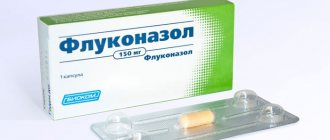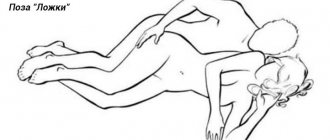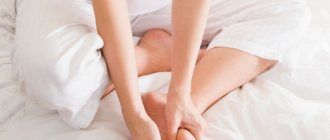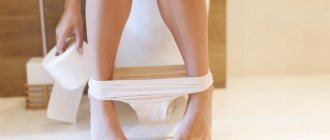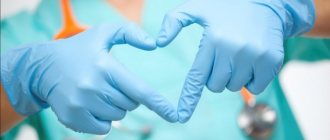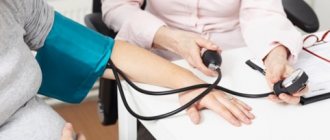Causes
In order to understand the dangers of a frivolous attitude to the problem, you must first decide why women have itchy feet during pregnancy. The reasons can be both physiological, that is, natural (of course, for the state of pregnancy), and pathological, indicating that health problems have arisen.
This, especially, requires careful attention, since we are talking about the health of two people at once. After all, we are talking not only and not so much about subjective unpleasant sensations, but also about an objective threat to health.
Physiological causes of itchy feet
- circulatory disorders;
- profuse sweating.
It may seem like a contradiction, but during pregnancy some abnormalities are natural. The body, rebuilding itself at this time, directs its resources primarily to serving the needs of the unborn child. The pregnant woman herself may sometimes experience discomfort, in particular during pregnancy her arms and legs itch (another manifestation of discomfort during pregnancy is numbness in the extremities. Read an article on the topic: Arms and legs go numb during pregnancy>>>).
In blood circulation, figuratively speaking, the emphasis shifts, since for the fetus to fully grow, it requires oxygen and nutrients, and all this is supplied to it by the mother’s blood. In the legs of a pregnant woman, stagnant processes may be observed; disruption of normal blood circulation can lead to itching, swelling of the legs and even varicose veins (read the current article Pain in the legs during pregnancy>>>).
Swelling during pregnancy is the reason why your feet itch. You need to deal with this problem as follows:
- Drink herbal diuretics with a moderate effect (so-called kidney tea, canephron, etc.);
- Drink drinks made from sour berries - currants, cranberries and others;
- When your feet hurt and itching appears, you need to lie down and rest, placing a cushion under your feet;
- Be sure to wear comfortable, non-squeezing shoes without heels;
- Avoid synthetic tights and stockings when itching; wear cotton or woolen socks and tights, depending on the season.
If sweating is too intense, when your feet sweat a lot, you need to make foot baths at room temperature several times a day with the addition of a decoction of oak bark, sage, and calendula. This will not only reduce sweating, but also help relieve itching and eliminate possible unpleasant foot odor. Find out whether it is possible to warm your feet during pregnancy from the article Soar your feet during pregnancy>>>.
Itching in the legs as a sign of malaise
- When the liver and gallbladder cannot cope with the increased load during pregnancy, a pathological condition occurs called cholestasis (cholestatic hepatosis) in the pregnant woman. This condition may cause the legs below the knees to itch during pregnancy: calves, ankles, legs, feet. In addition to itching, redness of the skin may occur;
Know! Cholestasis of pregnancy is characterized by the spread of itching throughout the body, especially at night. As a rule, cholestasis appears closer to the second half of pregnancy.
- It is also necessary, if itching in the extremities appears, to check the blood for sugar content. Perhaps you have diabetes, the existence of which you did not even suspect, and during pregnancy the disease began to progress. By the way, one of the signs of diabetes, besides itching, is sweating;
- But in the case of skin diseases, sweating can cause itching. Profusely sweating feet become a target for pathogens, as the skin becomes irritated and inflamed from constant sweat. If you also often scratch your itchy feet, you can cause microtraumas, which can become a gateway to infection.
- But even with ideal care, skin diseases caused by hormonal disorders during pregnancy may appear;
Important! Do not rush to apply antifungal ointments to your feet. Treatment should only be determined by a doctor, and he will be able to distinguish a skin disease from an allergic reaction.
What to do if your legs itch during pregnancy and the itching is combined with external manifestations (rashes, redness)?
- This may be the body's reaction to an allergen. Try to remember what new things you used in food (read about healthy eating in the book Secrets of Proper Nutrition >>>), in household chemicals (although you generally need to be as careful as possible with them during pregnancy), in care products or cosmetics;
- Traditional allergens such as animals and plant pollen can also cause itching. By the way, the allergen is not wool, as is commonly believed, but exfoliated particles of animal or bird skin. Therefore, the so-called “hairless” breeds are no less allergenic than their furry counterparts.
Diseases with body itching
Quite often during pregnancy, the body itches due to illness. One of them is gestational diabetes, which can develop while expecting a baby. This form increases the sugar level.
In addition to this disease, some other ailments can provoke skin discomfort.
Severe itching is a symptom of a surge in hormones during pregnancy. At this time, the body begins to intensively produce estrogen. The liver is unable to cope with this load, so bile gradually accumulates in the body.
Toxic substances are distributed through the blood and muscles throughout the body. The ends of the nerve fibers become irritated, so the body begins to itch very much.
This discomfort is felt most strongly on the feet and palms. It stops after the baby is born.
In late pregnancy, the body itches from contact with the antigen. In addition to itching, rash and redness appear. This pathology is caused by washing products, some food products, and also pets.
Only by removing the effect of the allergen on the body will you be free from itching.
We invite you to familiarize yourself with Callus with roots on the toe
Intrahepatic cholesteasis is a liver disease in expectant mothers. A restructuring occurs in the expectant mother's body, which can lead to disruption of the liver. The process of production and outflow of bile is disrupted. Bile acids accumulate in a woman's blood.
Many who experienced this disease felt that their entire body was itching. Itching is first felt in the area of the palms and feet. After some time, it spreads throughout the body. Increased discomfort occurs in the evening or during night sleep. Pathology is most often diagnosed in the third trimester.
Cholestasis appears in late pregnancy. During this period, the expectant mother needs to see a doctor. Only after diagnosis will it be known whether the pathology is related to pregnancy or not.
The first symptoms of scabies usually appear 7-10 days after infection. Scabies during pregnancy is especially severe at night. This disease is parasitic and contagious.
It is caused by a scabies mite, which is transmitted through contact with an infected person.
While waiting for a baby, the balance of immunity shifts - the humoral one becomes the main one. Thanks to it, certain substances are produced that destroy foreign organisms. Skin cells begin to react strongly to substances produced by the body of the woman and the fetus.
This is why a pregnant woman's body itches. With polymorphic dermatosis, in the third semester, edematous papules and plaques appear on the skin of the abdomen. They itch and cause discomfort.
Kidney damage
The appearance of pain when urinating, itching in the early stages of pregnancy may indicate problems with the kidneys. Initially, irritation appears in the genital area and can spread to the entire body.
If, in addition to these symptoms, increased body temperature occurs, consult a doctor immediately.
If your feet itch
Often at the thirty-seventh week of pregnancy, a woman’s legs begin to itch. The last days are very difficult physically, and there is a lot of stress on the lower limbs. A large amount of liquid accumulates in them.
The reason is excessive stretching of the skin, microtraumas appear that provoke itching.
Unpleasant sensations in the legs can be avoided as follows:
- Use moisturizing and nourishing ingredients to care for dry, sensitive skin.
- Herbal diuretics will help get rid of swelling of the legs. Only after consulting a doctor.
- Proper nutrition, proper rest and adherence to the regime.
- Drinking the required amount of water.
Pregnant itching can be a sign of serious disorders in the body of the expectant mother, which, without adequate drug correction and immediate response from doctors, often cause premature termination of pregnancy or pose a real threat to the health of the woman and her baby.
The following diseases are identified that can cause itchy skin during pregnancy:
- diabetes mellitus diagnosed in a woman before pregnancy, as well as persistent hyperglycemia in later stages (gestational diabetes);
- allergic reactions, which are frequent companions of pregnant women and occur under the influence of various factors on their body, including food, hygiene products, synthetic vitamins and the like (an itchy rash most often appears on thin and delicate skin, in natural folds);
- skin itching during pregnancy can be an early symptom of severe liver dysfunction;
- thrush or candidiasis provokes the appearance of itching sensations in the genital area, which are accompanied by copious discharge with a sour odor;
- hormonal changes in pregnant women with increased activity of production of thyroid hormones and adrenal glands;
- nervous disorders;
- skin diseases, in particular, lichen, eczema, dermatitis, scabies and fungal infections of epidermal tissues;
- chronic intoxication of the body.
Quite often during pregnancy, the body itches due to illness. One of them is gestational diabetes, which can develop while expecting a baby. This form increases the sugar level.
How to avoid itching
If you have itching in your legs, you should not start self-treatment.
- But you can use preventive measures that will help relieve itching - for example, moderate temperature baths;
- In case of congestion and slight swelling, it is useful to do a light massage of the legs - it is better if you ask someone to lightly massage the legs before going to bed;
- Maintain personal hygiene and try to eat well: itching may signal that the body is lacking some substance. If for some reason natural vitamins are not enough, after consulting with your doctor, take vitamin complexes for pregnant women.
Treating itching at home
Any treatment depends on a clearly established diagnosis. If itching appears as a result of swelling of the body, start with local therapy. The following recommendations will help relieve itchy feet during pregnancy:
- Take a foot bath with chestnut tincture, sea salt, and chamomile infusion.
- Apply a special moisturizing and pain-relieving cream to your feet.
- Wear cotton socks. Synthetic products provoke an allergic reaction.
- Drink the right amount of fluid. Drink at least 1.5 liters of water per day.
- Try to exclude from your diet citrus fruits and other foods that can cause an allergic reaction - seafood, honey, peanuts.
These recommendations help temporarily relieve the symptoms of itching. The itching finally goes away only after childbirth and recovery of the body.
Symptoms
The typical and only symptom of the disease is itching during pregnancy. He appears exclusively in the last trimester. First, the feet and palms begin to itch. The condition worsens in the evening and at night. As the concentration of bile acids increases, the whole body (legs, abdomen) itches, the itching becomes very intense and painful. Scratching appears on the skin.
It is important to note that the skin color remains normal and there is no jaundice. Blood tests that are usually prescribed to expectant mothers as screening (total bilirubin, AST, ALT, alkaline phosphatase, cholesterol) may be within normal limits. Sometimes AST and ALT increase slightly.
At the very beginning of the disease, it is impossible to identify signs of fetal suffering. CTG and ultrasound data of the child remain normal.
Sometimes it happens that the most severe itching suddenly goes away completely. Most often, this indicates that a catastrophe has occurred and the child has already died. In this case, it is necessary to urgently go to the hospital. But it is best not to bring it to an extreme state.
Determination of the concentration of free bile acids in the blood plasma is of decisive importance in diagnosis. Unfortunately, this analysis is not part of screening and is done only in some commercial laboratories.
Normally, the concentration of bile acids should not exceed 5.7 µmol/l. In expectant mothers, their level is allowed to increase to 7 µmol/l. Itching in pregnant women appears when the concentration of bile acids is more than 11 µmol/l . A value of 40 µmol/l is clinically expressed by painful, unbearable itching of the skin. And it is precisely this value (40 µmol/l and above) that is extremely dangerous for the child and is an indication for urgent delivery. That is why, even if the doctor has not prescribed a blood test for free bile acids, it is worth doing it in the last trimester in any case, and if the skin begins to itch, the first test that needs to be done is to determine the bile acids in the blood.
Possible reasons why your legs below the knees itch:
Dry skin on feet
If, some time after taking a shower, when the skin is completely dry, there is a feeling of tightness and itching under the knees, dry skin may be the cause. In this case, immediately after hygiene procedures, the skin must be moisturized. Baby oil, body moisturizer or a special cream for skin prone to dryness - you need to choose the most suitable option.
Allergy
Whether it's a reaction to dust, the neighbor's cat, or dishwashing detergent. If the itching of the skin of the legs has nothing to do with personal hygiene, first of all you should think about an allergic reaction. The most common allergens:
- new laundry detergent;
- synthetic fabric of new trousers or tights;
- frost (cold allergy);
- food products;
- medicines, etc.
Skin allergies manifest as hives. This is a rash that looks like a burn from contact with nettles (hence the name).
To confirm that itchy feet are caused by an allergic reaction, you need to consult an allergist. He will recommend a general blood test and, possibly, a blood test for antigens to the most likely allergens.
Do not resort to self-medication to prevent allergic dermatitis from developing!
Psoriasis
Psoriasis is one of the types of non-infectious dermatoses. This is a chronic inflammation of the skin in the form of red spots that rise above the skin and merge into plaques. The causes of the disease are not fully understood, and today doctors are inclined to believe that it is autoimmune in nature. Psoriasis is a serious disease that significantly reduces the patient’s quality of life. Fortunately, specific therapeutic strategies have already been developed that have proven effective in treating even the most severe forms of psoriasis.
Skin dermatitis
Dermatitis is an inflammatory skin disease that appears due to exposure to external factors (bacteria, viruses, fungi, chemicals, etc.) and/or internal (endogenous) factors (pathologies of internal organs).
Decreased immunity, skin injuries, insect bites can lead to the fact that the normal microflora of the skin increases in number and becomes pathogenic. This is how staphylo- and streptoderma, various fungal diseases, lichen, etc. arise. All these diseases are combined under the general term – dermatitis.
To find out and eliminate the cause, you need to consult a dermatologist. He will recommend microscopy of the scraping to identify the pathogen, and subsequently prescribe appropriate therapy.
Video about dermatitis on the legs:
Diabetes
Diabetes mellitus is a disease of the 21st century. This is a serious disease that affects about 6% of adults and 0.5% of children. Dryness and itching of the skin of the legs is something that every patient with diabetes faces. It is the increased level of blood glucose that leads to disruption of the protective functions of the skin, as a result of which it dries, flakes and itches. This can be avoided by maintaining normal blood sugar levels. But if the patient does not see a doctor for a long time, constant itching and scratching of the skin leads to secondary inflammation due to the growth of bacteria and fungi on the wound surface.
Varicose veins and other vascular pathologies
Causes of itching with varicose veins:
- Stagnation of blood in the veins. An enlarged varicose vein protrudes under the skin and compresses small vessels. Due to the stretching of their walls and constant tension, itching of the skin occurs.
- Accumulation of harmful substances in blood stagnation and deficiency of blood supply to the lower limb.
Also, skin itching can accompany thrombophlebitis of the superficial veins, when the skin around the diseased vessel becomes inflamed, red and thickened.
Liver diseases
With liver damage (cholestasis, hepatitis, cirrhosis), the skin itches due to the effect of bile acids on its nerve endings. If itching occurs against the background of other “liver” symptoms (jaundice, pain in the right hypochondrium), there are no difficulties in making a diagnosis.
But there are times when itching is the first and only symptom. As, for example, with biliary cirrhosis, when the patient may not suspect for years that he has such a serious disease.
With liver diseases, the skin itches very much, mainly at night.
Renal pathologies
In the terminal stage of the disease, when all kidney functions are impaired, toxins and increased levels of certain substances that should normally be excreted from the body irritate the nerve endings of the skin, thereby causing itchy skin.
During pregnancy
Any pregnant woman is very sensitive to her health and the health of her unborn baby. Therefore, if any complaints appear, she immediately runs to the antenatal clinic.
The people were taken aback! Joints will recover in 3 days! Attach...
Few people know, but this is exactly what heals joints in 7 days!
If you experience itchy skin in late pregnancy, do not immediately sound the alarm! Most likely it is associated with poor circulation in the lower extremities, due to compression of the pelvic vessels by the pregnant uterus. But it’s still worth telling your local doctor about this to rule out the following diseases:
- Cholestatic hepatosis in pregnancy is a condition where the gallbladder and liver are unable to cope with the increased load due to pregnancy.
- Gestational diabetes mellitus (pregnancy diabetes) is a condition that occurs due to the inability of the pancreas to produce enough insulin due to pregnancy hormones that prevent insulin from breaking down glucose.
- Other reasons described earlier may also occur during pregnancy (allergies, dermatitis, varicose veins, pathologies of internal organs, etc.).
Worm infestations
We are used to associating worms with itching of the anus, but this is how only enterobiasis (pinworm infection) manifests itself. The remaining numerous types of helminths may not provoke the appearance of any specific symptoms, which significantly complicates their detection.
A significantly increased level of eosinophils in the blood may lead the doctor to think about helminthiasis. Then you should undergo a full examination, and if the diagnosis is confirmed, take a full course of anthelmintic drugs.
Other causes of itching of the lower extremities
There are times when, after a complete examination of the patient (blood tests, ultrasound of internal organs, allergy tests, etc.), the doctor cannot decide on a diagnosis. In this case, you can hear the term “neurodermatitis”.
Neurodermatitis is a diagnosis of exclusion. The causes of this disease are not fully understood. The most likely include:
- allergies;
- intoxication;
- stress, neuroses;
- diseases of internal organs;
- inflammation;
- bad habits;
- Unhealthy Lifestyle.
The skin with neurodermatitis itches very intensely, and constant scratching becomes a gateway to infection, and the disease moves to a new level. Neurodermatitis is characterized by alternating exacerbations and remissions. Unfortunately, if this diagnosis is made, you will most likely have to struggle with its manifestations throughout your life.
Cholestasis in pregnancy treatment
The only drug that can help a woman is Ursosan (ursodeoxycholic acid). The main active ingredient of the drug is a non-toxic water-soluble acid that can bind and neutralize toxic bile acids. The drug significantly alleviates the condition of the expectant mother and improves the prognosis for the child. The medicine is prescribed only if the concentration of bile acids is less than 40 µmol/l, at a dose of 10-15 mg/kg.
If a woman has elevated levels of AST and ALT, it is also worth taking Heptral. You should absolutely not take hepatoprotectors from the group of essential phospholipids, for example, Essentiale, they can worsen the condition. It is also recommended to exclude all additional medications, such as vitamins, in order to relieve the liver as much as possible.
And of course, if a woman has cholestasis, she needs to be under round-the-clock supervision in an obstetric hospital. Among the therapeutic measures that can be performed in the hospital, plasmapheresis and hemosorption are usually prescribed.
The doctor’s main tactic is to prolong the pregnancy as much as possible. Delivery before 37 weeks is indicated if treatment is ineffective and there is a high risk for the baby.
How to eliminate itching all over the body during pregnancy
Itching all over the body during pregnancy cannot be ignored, as there is a danger of harming the fetus. This problem is difficult, but it is necessary to fight. Itching interferes with proper restful sleep, which has a bad effect on the condition of the fetus.
The method of combating pathology depends on the etiology of its occurrence.
Conservative treatment options if the body itches:
- Urosan or Ursofalk is prescribed for elevated levels of the enzyme ALT or AST.
- When an allergic reaction occurs, the first step is to determine its cause. After this, antihistamines are prescribed. Treatment is carried out by an allergist.
- In diabetes mellitus, the amount of sugar is constantly monitored. I'll have to give up sweets. If necessary, the endocrinologist can increase the insulin dose
- For skin problems, calcium supplements and vitamins are used. Lotions with a solution of potassium permanganate are also recommended.
- For liver problems, the doctor prescribes hepatoprotectors that can be used during pregnancy.
- Discomfort in the intimate area - candles are used.
- Sedative medications are prescribed for disorders of the nervous system.
- To eliminate stretch marks, a special body cream is used.
To eliminate the discomfort that often accompanies pregnancy, you can resort to traditional medicine. Medicinal herbs are most often safe for mother and child. But you should still consult a doctor.
After assessing the risks and approval of the doctor, you can use the following traditional recipes:
- For lotions, use periwinkle leaves. For one glass of boiling water you need a tablespoon of the plant. The mixture is boiled for ten minutes and then infused. The decoction is used for bathing. The remainder is applied to the problem area.
- Tea. Melissa and mint are used. The decoction has a calming effect.
- Cabbage leaves are soaked in apple cider vinegar, crushed into a paste and applied to the itchy area.
It is also recommended to take water treatments with the addition of a decoction of calendula or chamomile with elecampane.
Two types of drugs are used to treat the disease:
- ursodeoxycholic acid (Ursosan) – eliminates or reduces itching and restores liver function;
- steroids (dexamethasone).
Another treatment method is diet therapy. Protein-rich foods and dairy products are recommended. Weekly monitoring of the condition of the expectant mother is carried out and the necessary tests and examinations are prescribed.
The daily menu of the expectant mother should contain:
- healthy carbohydrates – 40 g;
- animal and vegetable proteins – 8 g;
- fat – 30 gr.
A little butter is allowed.
Fried and fatty foods are excluded from the diet. If the level of cholesterol in the blood is high, hard-boiled eggs, sauces, mayonnaise, and fast foods are prohibited. Coffee and green tea are also removed from the diet.
- Porridges are cooked only in water; you can add a little milk at the end of cooking.
- Doctors recommend foods high in fiber.
- The diet should be balanced.
We suggest that you familiarize yourself with the Causes of urticaria during pregnancy and its treatment. Is hives dangerous during pregnancy? Causes, treatment and photos in pregnant women
Why do your feet itch during pregnancy?
With the onset of pregnancy, changes occur in the female body that allow her to bear a healthy and strong baby for 40 weeks. Expectant mothers change not only internally, but also externally. And very often these changes can lead to swelling or itching in different parts of the body.
Feet often swell during pregnancy
Often pregnant women experience itching in the leg area. The main reasons that provoke this condition include severe stretching of the skin, which occurs due to the increase in weight of the pregnant woman. The appearance of itching can be caused by dry skin, as well as the presence of swelling of the extremities, characteristic of the last trimester of pregnancy.
In most cases, this problem can be dealt with using natural-based moisturizers. These cosmetics contain soothing substances that have a beneficial effect on the skin, relieving itching.
Causes of itching
Understanding the etiology of the manifestation in question, it is important to note that at the moment 2 types of causes are known:
- natural (hormonal changes, poor circulation, dry skin, swelling of the legs in the third trimester, allergic reactions);
- pathological (iron deficiency, malfunction of the gallbladder).
Throughout the entire period of gestation, the female body is reconstructed: the position and size of internal organs changes, the skin stretches, the center of gravity shifts, etc. Pregnant women may experience a wide variety of sensations (including itching of the lower extremities).
Based on this, we can draw the following conclusion: one of the causes of itching on the legs during pregnancy is excessive stretching of the skin: with a sharp increase in weight, the skin has to stretch quickly, its supply of nutrients is disrupted, which provokes dryness and death of epidermal cells. There is no need to be afraid of this if you moisturize your skin in a timely manner.
Another cause of itching is incorrect functioning of the gallbladder and liver, which provokes various changes in the pregnant woman’s body (cholestasis). We should not forget about varicose veins and spider veins, which cause not only discomfort, but also a feeling of aesthetic dissatisfaction.
Only a doctor can identify the causes and eliminate problems, because all manifestations, and especially the conditions of pregnant women, are individual.
As another cause of itching of the legs below the knees, it is worth noting restless legs syndrome - a manifestation in which the following is recorded:
- severe itching in the area of the leg and foot;
- partial numbness of both individual areas and the entire limb;
- the appearance of “goosebumps” and an obsessive desire to “move your fingers.”
The next manifestation may be itching in the area between the toes or feet. This symptom is often recorded in fungal diseases, which need to be dealt with quickly and only after consultation with a specialist.
A person who notices the appearance of the above symptoms should immediately be shown to a doctor: only he will be able to make a clear diagnosis and prescribe full treatment, taking into account the characteristics of the body.
Itchy feet during pregnancy: what to do?
As a rule, itching does not bother women until the sixth month of pregnancy, but sometimes there are exceptions to the rule.
Some may not even feel it, because it is expressed in a mild form. In most cases, the appearance of itching is a natural process, which is associated with changes in hormonal levels and stretching of the skin. But if your feet itch very much and discomfort is felt at any time of the day, you should not delay going to the doctor. This will ensure that there is no threat to health.
If no serious cause for concern has been identified, you can try using cool compresses in combination with moisturizing lotions that contain antihistamines. During this period, you should wear clothes made of cotton, linen and other natural materials. Often, tight, synthetic fabrics cause a rash on the legs of pregnant women that itches.
Itching in late pregnancy
In the early stages of pregnancy, the body begins to itch for several reasons:
- One of them is a restructuring of the body that causes the appearance of thrush. In this case, the itching is localized in the genital area. During this period, immunity decreases, and the woman is susceptible to many diseases.
- The second reason is that the expectant mother was ill even before conception. During pregnancy, the disease can enter an active stage.
- An increase in the amount of estrogen in the body is also a cause of itching.
Itchy skin in late pregnancy is most often a consequence of rapid weight gain, poor diet and the appearance of stretch marks. The belly grows, the skin does not have time to stretch and begins to itch.
- One of them is a restructuring of the body that causes the appearance of thrush. In this case, the itching is localized in the genital area. During this period, immunity decreases, and the woman is susceptible to many diseases.
- The second reason is that the expectant mother was ill even before conception. During pregnancy, the disease can enter an active stage.
- An increase in the amount of estrogen in the body is also a cause of itching.
We suggest you familiarize yourself with an effective remedy for warts on the feet
Itchy skin in late pregnancy is most often a consequence of rapid weight gain, poor diet and the appearance of stretch marks. The belly grows, the skin does not have time to stretch and begins to itch.
Why does the body itch during pregnancy? Doctors hear this question every day. Itchy sensations can haunt a woman throughout the entire period of bearing a child, or can manifest themselves exclusively in the first or second half of pregnancy.
During early pregnancy, approximately half of expectant mothers experience body itching. This unpleasant symptom appears already in the first month and is associated with hormonal changes in the body of women. Sometimes some of them perceive such discomfort as a sign of pregnancy that has occurred. Such a judgment is far from reality, since these two concepts are not normally combined.
The main reason why the body itches in the first weeks of pregnancy is the activation of pathogenic microflora, exacerbation of chronic thrush and the development of bacterial vaginosis. All this occurs against the background of a sharp decrease in immunity, and therefore has pronounced clinical symptoms. Also, at the beginning of pregnancy, a woman begins to develop cholestasis and, as a result, severe itching throughout the body.
Women experience itching and burning especially acutely during pregnancy at 32-36 weeks. The reason for such changes may be a rapid increase in the size of the abdomen, stretching of the skin and the formation of stretch marks.
It is extremely rare that at 6-9 months of pregnancy, itchy sensations in women are a sign of hepatitis or hepatosis. You should not suspect cholestasis in expectant mothers in the later stages, since it almost never occurs during this period.
Preventive measures
To prevent itching on the skin of the lower extremities, you must follow simple recommendations.
- During pregnancy, you should not get carried away with exposure to the rays of the scorching sun, which can cause redness and even burns on the skin. It is best to choose shady alleys for a walk.
- If your feet itch, taking a warm shower or bath with a mild cosmetic will help. For these purposes, baby foam or soap that does not contain fragrance or dyes is perfect.
- Apply moisturizing lotions or creams immediately after showering. When the pores of the skin are maximally open, the product is absorbed faster and has a softening effect.
- It is not recommended to wear tight synthetic clothing. In addition to discomfort, such things cause serious harm to the health of mother and baby.
- A pregnant woman should strictly monitor her diet and consume enough drinking water. Lack of fluid provokes loss of moisture, including from skin cells, which leads to dryness and itching.
- Cool foot baths will reduce skin itching and relieve fatigue. This includes keeping the bedroom temperature cool and limiting physical activity.
- A light massage using a cooling cream will help cope with itching. You can involve your husband or relatives for help. This procedure will not only help you relax, but also relieve discomfort.
If you have itchy feet during pregnancy, there is no need to panic. Visit your doctor for a skin exam. If itching is caused by a natural condition of the body, follow the simple recommendations described above. They will help alleviate the condition, improve well-being, which will make it possible to fully enjoy the wonderful situation while waiting for a small miracle.
Methods of prevention and prevention of itching symptoms
Anyone can experience itchy feet. But you can try to regulate the factors that influence its appearance, such as physical and psycho-emotional state. Therefore, to expectant mothers:
- Avoid standing or sitting for long periods of time. In such cases, blood circulation is disrupted, which provokes numbness of the upper integument of the skin.
- We need to walk more in the fresh air. This is useful for the mother as a prevention of anemia, because the blood is saturated with oxygen. This improves blood circulation, activates brain activity, and improves the psycho-emotional state.
- Take a contrast shower. If your body is not used to such treatments, try doing it only on the parts of the body where itching occurs.
- Visit a massage parlour. Sometimes itching in the feet disappears if you massage them. Massage can also be done at home.
Itching on the legs is an unpleasant symptom, but it can be prevented or alleviated by following the recommendations described above.
Itchy feet during pregnancy and why it's serious
Itchy body skin is common among pregnant women, but it can sometimes be a symptom of a serious condition called obstetric cholestasis. It is accompanied by severe itching of the skin of the legs and arms, especially the feet and hands at night. Unlike the itching that accompanies normal stretching of the skin, obstetric cholestasis can affect the pregnant woman's liver and the health of the unborn child.
Is itchy feet dangerous during pregnancy?
Many women experience itchy skin during pregnancy, which is usually nothing serious. However, if itching occurs in the arms and legs during the third trimester and is accompanied by unusual symptoms such as nausea, vomiting, fatigue and loss of appetite, it may be more than just a skin problem.
One of the common causes of itchy feet during pregnancy is cholestasis, a condition in which the flow of bile from the liver is impaired. This usually causes the urine to darken and the stool to become discolored. Excess bile in the blood is toxic to the baby and increases the likelihood of premature birth, as well as the risk of swallowing your own stool (meconium) during labor, which leads to breathing problems. There is also a risk of fetal death, so the doctor may choose to induce premature labor to avoid possible complications.
Causes of itching
Itching can be constant or periodic, of varying intensity, occurring under certain conditions or on its own. Naturally, such diversity is due to various causes, and therefore the pregnant woman should tell the doctor all the details so that he can correctly understand the cause of the itching and find a solution to eliminate it.
In some cases, itching is accompanied by the appearance of rashes of different colors: red, white, pink, brown. The structure of the rash itself is also varied: spots, blisters, nodules, etc. It's the same with location. A number of diseases and pathologies have their own “favorite” places for rashes to appear. It can be exclusively the arms or legs, the chest, closed or open areas of skin. Doctors identify the following causes of the disease (see table).
| Cause | Description |
| Excessive stretching of the skin during pregnancy | It is a mistake to believe that only the skin of the abdomen and chest stretches and therefore itches. It is rare that a woman does not gain weight during pregnancy. Weight gain occurs due to an increase in subcutaneous fat in the thighs, buttocks, legs, and arms. The elasticity of each person's skin is very individual, so for some, even a significant weight gain will not cause changes, but for others, it is enough to gain 2-3 kg for stretch marks to appear. It is easy to understand whether this is the cause of the itching. You need to look at the skin. Stretch marks are visible as small white or reddish scar-like defects in the skin |
| Disorders of the liver, gallbladder and biliary tract, causing cholestasis in pregnant women | The expectant mother undergoes serious hormonal changes in her body, which affects the concentration, production, composition of bile and digestion in general. It is also necessary to take into account the constant growth of the baby in the mother’s belly throughout pregnancy. At the same time, the internal organs gradually, but quite significantly, shift. The normal outflow of bile may be disrupted, which, together with changes that occur as a result of hormonal changes, will be the cause of cholestasis. Pregnancy jaundice causes not only itching or spots, but also many other changes. A woman’s arms and legs (palms and feet) turn red, her urine may become noticeably darker, and her stool may become colorless. Gradually, itching with cholestasis spreads to the entire body, although only the arms or legs may itch. The risk of cholestasis is increased in pregnant women who have had problems with the above organs before, that is, who have had cholelithiasis, hepatitis, who have suffered from increased cholesterol levels in the blood, obesity |
| Hormonal changes | The itching is localized only in the area of the arms (palms) and feet. Goes away on its own after childbirth and does not require treatment. Sometimes, against the background of hormonal changes in the body, even without itching, a change in pigmentation occurs on the skin. This is due to the fact that the level of melanin in the skin, the pigment responsible for its color, changes. Most often, not red, but brown spots appear on the face and stomach, but they are rare on the arms and legs |
| Allergic reactions | During pregnancy, any woman undergoes significant changes in her immune system, otherwise she would not be able to bear a healthy child. These changes lead to disruption of the body's normal reaction to familiar things: food, laundry detergent, certain types of fabrics. Something that previously did not cause discomfort in a woman and was used in everyday life leads to the development of allergies. Such provocateurs can be shampoos, soaps, foods, pollen, house mites, that is, there are many potential allergens. Therefore, during pregnancy you should not experiment and switch to new cosmetic products, eat exotic dishes, etc. Lead a normal lifestyle. Allergies most often appear a short time after encountering an allergen. The rash may appear as red, itchy spots on the arms, legs, stomach, or other parts of the body. |
| Increased sweating | In this case, the itchy rash is localized on the body in those places where sweat does not immediately evaporate from the skin: in the armpits, under the breasts, in the groin folds, under the knees, but on flat areas of the body, in the area of the arms and legs, it practically does not occur. In appearance it looks like red spots of uneven shape, sometimes itchy. Frequently using deodorant during pregnancy is not recommended, so it is better to get rid of this cause in simple but harmless ways: take a shower more often, dress according to the weather, wear clothes made from natural materials that allow the skin to “breathe” |
Why can your feet itch during pregnancy?
Areas of the body where the skin stretches during pregnancy, such as the stomach, thighs and legs, may be itchy, but this is not a major problem. However, a condition called cholestasis in a pregnant woman is indicated by itchy feet, palms, dark urine, light stools, and a yellow tint to the whites of the eyes and skin.
The exact cause of obstetric cholestasis is unclear, but experts suspect it is caused by hormonal changes associated with pregnancy. In this case, bile (yellow-green digestive fluid) does not flow from the liver to the intestines as it should. It is produced in the liver, but if its flow into the intestines is blocked, it can enter the bloodstream and cause unusual symptoms, including itchy feet during pregnancy. Additionally, this condition may also be associated with certain genetic factors. It is known that cholestasis during pregnancy is often observed in the same family.
Etiology of the disease
So, why do your legs itch below the knees? It could be:
- skin infectious disease;
- the action of parasitic life forms (the so-called carpet, or dust, mites);
- chain reaction due to the spread of fungal infections;
- incorrectly selected nutrition system (no clear diet);
- mechanical damage to the skin;
- improper functioning of the circulatory system (for example, varicose veins).
An allergic reaction may also occur. Only if we are talking about some kind of local itching, that is, on a certain area of the skin, then, most likely, the culprit is a contact allergen. You can try to find the exact cause yourself, but it is better to take blood tests and skin tests and consult a dermatologist. It is quite possible that in the place where it itches the most, atypical peeling of the stratum corneum develops (or the absence of this process), which provokes the appearance of non-inflammatory skin diseases.
How to reduce itchy feet?
The diagnosis of obstetric cholestasis is confirmed by laboratory tests showing abnormal liver function results. The doctor should regularly monitor blood tests, as well as the condition of the child throughout pregnancy.
Safe lotions
Soothing lotions can help relieve itching. Because some oral medications are often unsafe during pregnancy, your doctor may recommend using topical products, such as sunburn lotion, to relieve itching.
Nutritional supplements
Cholestasis reduces the ability to absorb certain nutrients, so a pregnant woman's diet should be increased in vitamin K, which is essential for blood clotting. Cholestasis during pregnancy is quite treatable. It is recommended to use ursodeoxycholic acid. This is a tablet that absorbs excess bile and prevents it from entering the baby's bloodstream, while at the same time reducing itchy skin in a pregnant woman.
Induction of labor
If the itching is very severe, induction of labor may be necessary before the pregnancy reaches full term (37 weeks). However, only a doctor can determine whether this will harm the child and whether his lungs are fully developed. And only he will decide where it is safer for the child to remain - inside or outside the uterus.
Medical tests for monitoring
The doctor orders weekly tests to monitor liver enzymes and also performs stress-free tests to monitor the baby's condition. To make sure the fetus is growing and its lungs are working well, sonograms can be done every two weeks.
